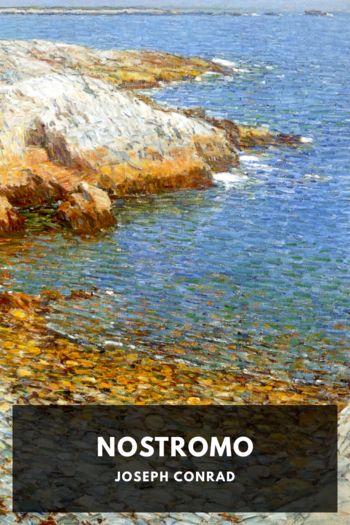Whoever Fears the Sea by Justin Fox (essential reading .txt) 📗

- Author: Justin Fox
Book online «Whoever Fears the Sea by Justin Fox (essential reading .txt) 📗». Author Justin Fox
‘Sure, Johan, just like the doccie we did on Great Zimbabwe.’
‘Zackly. Same style, same mood, grander scale. You fly up in two weeks’ time. For once we’ve got a decent budget. You’ll be able to stretch it for a month, maybe six weeks if you’re careful. Do the location scouting and check out hotels while you’re at it. There’s lots of good material across the border in Somalia, but things are too hairy there at the moment and there’s the threat of pirates.’
‘Pirates? Are you serious?’ Paul raised his eyebrows.
‘Just stick to Kenya and don’t get any funny ideas. I know you.’
Paul gave him an innocent grin.
‘Don’t look at me like that,’ said Johan.
‘Like what?’
‘Never mind. I want us to shoot a lot on those old boats —’
‘Dhows?’
‘Ja, dhows. Ask around about hiring one for a week or so. Lekker cheap. And not one that leaks. Set the whole thing up for us. We’ll want to interview a dhow captain, chat about his culture and whatnot. A good-looking bloke with a beard and a dishtowel around his head, you know the type.’
‘You got a title yet?’ asked Paul.
‘A working title, for now. People of the Monsoon. But let’s see what the Nat Geo boys think. Washington will probably want something sexier.’
Paul had worked for Africa Moon Films many times before and knew what Johan liked. Over the next two weeks, Paul spent his mornings at Wits Library doing research. The documentary started to take shape in his head. It soon became clear that most of the shooting should take place in and around the Lamu Archipelago, where Swahili traditions seemed to be strongest and dhows remained the principal mode of transport. Crossing into southern Somalia could be just as fruitful, but the security situation prevented it and Johan had been firm on that point.
The more Paul read, the more intrigued he became by this urbane, peaceful trading culture with its beautiful architecture. He was surprised by how ancient its roots were. On a dusty shelf, he came upon a copy of the Periplus of the Erythraean Sea, a Greek sailors’ and traders’ handbook written in the second century AD. It talked about the thriving port of Rhapta:
Two days’ sail beyond the island of Menouthesias lies the last mainland market-town of Azania, which is called Rhapta, a name derived from the small sewn boats. Here is much ivory and tortoiseshell. Men of the greatest stature, who are pirates, inhabit the whole coast and at each place have set up chiefs.
Sewn boats? Paul was immediately intrigued. He did some more reading and discovered that the last mtepe was probably built in the Lamu Archipelago in the 1930s. Not a single nail was used in their construction. How fragile and leaky they must have been — and yet they were able to make transoceanic voyages. Mtepes were mostly used for coastal trade, though, and could take large loads into relatively inaccessible coves. The flexible hull was said to be faster than a rigid one and, with its shallow draught, the boat was able to run ashore or over shoals without much difficulty.
The craft had a square, matted sail made from palm leaves and a palm-frond deck housing. Its swan-like prow represented the she-camel which, according to the Koran, was sent from heaven to admonish some or other Arab tribe. Apparently, the elders refused to accept it as a divine token and hamstrung the beast. The use of red paint on the hull signified the blood of the camel, tortured by the impious Arabs, while the tassels hanging from the prow represented the camel’s reins and head stall.
Early chroniclers remarked on the air of flamboyance about the mtepes, which often carried bunting, streamers and flags. They sailed in convoy and drums were beaten hourly through the night so the boats could keep station. Paul tried to picture a flotilla of these oceanic camels, drums throbbing as they glided into harbour at dawn. What a sight they must have made.
Delving further, Paul came upon an article about mtepes written in the late 1970s. The author mentioned hearing stories of the remains of a wrecked mtepe near the dhow-building town of Galoh in southern Somalia. Paul felt a prickle of excitement. Could its skeleton still be there, twenty-five years later? A fabulous find in the arcane world of maritime archaeology. He imagined presenting his discovery via the movie. National Geographic would have a scoop, courtesy of Paul.
The ancestor of all dhows, Paul thought. At the very heart of Swahili commerce, of Swahili culture. What a great image for the movie.
An idea started to develop in Paul’s mind. He loved sailing. He’d grown up racing Optimist dinghies and, as a teenager, had spent every summer holiday with his parents in Richards Bay, where he crewed on keelboats and helped out as an agile foredeck hand during weekend races. More recently, he took part in round-the-buoys racing on the Vaal Dam on Sundays.
Rather than simply flying to Lamu, why not start in Mombasa and hitch a ride to Lamu on a dhow?
Thoughts of Hannah plagued him when he wasn’t working.
He’s really, really nice, said her voice. I think you’d like him.
Perhaps all three of us should have tea sometime in the misty future, he said to the creature that now lived in his head and vaguely resembled Hannah. Milk and arsenic with that, dear?
She was running fast and hard into the arms of another man and another life. Not looking back. He’d made it easy for her, cutting ties and walking away. Would she





Comments (0)